AI in Dentistry: Will It Replace or Empower Dentists?
Will AI replace dentists is a question generating increasing interest among both dental professionals and patients. As artificial intelligence (AI) technologies advance at a rapid pace, many are questioning whether the role of the human dentist will remain essential in the years to come. While some fear a future where robots perform procedures and diagnose conditions independently, others view AI as a powerful tool to enhance the precision and efficiency of dental care.
Rather than replacing clinicians, AI is poised to empower dentists by improving diagnostic accuracy, treatment planning, and patient communication. As Professor Falk Schwendicke from Charité University Hospital states, "Artificial intelligence will not replace dentists; it will help make their clinical outcomes more predictable." This balanced viewpoint reflects the growing consensus in the dental community: AI will serve as a collaborative partner, not a competitor.
Will artificial intelligence take over dental jobs is a concern rooted in the increasing implementation of AI systems in diagnostics, radiology, orthodontics, and patient data management. From reading dental X-rays to automating administrative tasks, AI has already begun transforming how modern clinics operate. But instead of replacing entire roles, AI applications are proving to be complementary—streamlining processes that traditionally consumed significant time and effort.
In particular, AI for dental diagnostics enables faster, more consistent interpretation of radiographic images. CranioCatch, for example, leverages deep learning algorithms to detect anomalies in dental radiographs with remarkable precision, assisting dentists in identifying issues that might be missed during manual review.

AI also contributes to improved workflow efficiency. It automates appointment scheduling, patient history analysis, and insurance verification—reducing the burden on administrative staff and freeing up dentists to focus more on patient care. Moreover, AI can monitor clinical performance and suggest adjustments for evidence-based treatment planning, aligning outcomes with best practices.
AI vs human dentists is not a battle for dominance but a comparison that reveals how each complements the other. In a modern dental clinic, AI can handle a wide variety of tasks—ranging from clinical diagnosis to operational support—allowing dentists to focus on what truly matters: patient interaction and clinical judgment.
One of the most prominent areas where AI excels is diagnostic radiology. Tools powered by machine learning can scan panoramic and periapical X-rays to detect caries, periapical lesions, and periodontal bone loss with high accuracy. These tools provide visual annotations and confidence scores, helping dentists verify findings and reach a diagnosis faster.
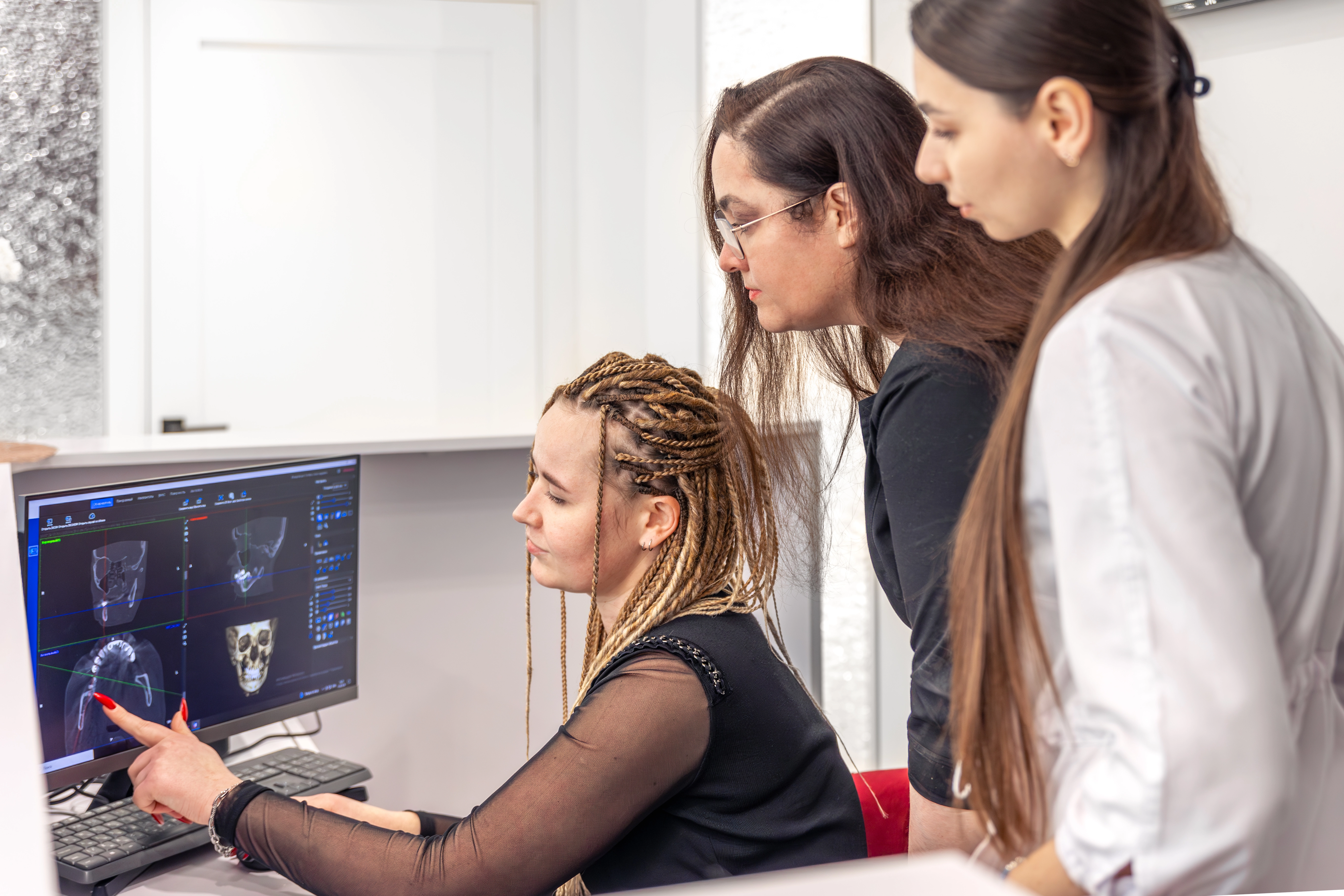
AI also automates repetitive tasks like appointment reminders, billing, and patient surveys, contributing to overall clinic efficiency and better patient engagement.
Will AI replace dentists is a provocative question, yet leading dental experts consistently argue that artificial intelligence, while powerful, cannot replicate the full spectrum of skills and empathy required in dentistry. The unique blend of scientific knowledge, manual dexterity, and human interaction that dentists bring to patient care is not something AI can imitate—at least not in the foreseeable future.
Professor Ioannis Ioannidis, a leading figure in dental AI research, emphasizes, “AI can assist in diagnosis and streamline clinical workflows, but the dentist’s role as a decision-maker, communicator, and healer remains irreplaceable.” This reflects a recurring theme in academic and clinical discussions: AI’s strength lies in supporting dentists, not replacing them.
Moreover, procedures such as complex restorations or surgical interventions demand hands-on expertise and emotional intelligence—traits that current AI lacks. AI vs human dentists is not about replacement but partnership, where AI brings speed and accuracy, and the dentist ensures care and trust.
Will artificial intelligence take over dental jobs becomes a less intimidating question when we acknowledge the irreplaceable value of human empathy, ethical judgment, and patient trust. While AI can process data at lightning speed and detect patterns, it cannot build relationships, offer reassurance, or tailor communication based on emotional cues—all of which are vital in dentistry.
This synergy is evident in both dental education and clinical settings. AI offers real-time feedback to dental students, but human educators still guide learning. Likewise, AI-generated reports must be interpreted by clinicians who understand patient-specific nuances.
By integrating AI for dental systems like CranioCatch’s solutions, practices achieve faster, more accurate results without sacrificing personal connection.
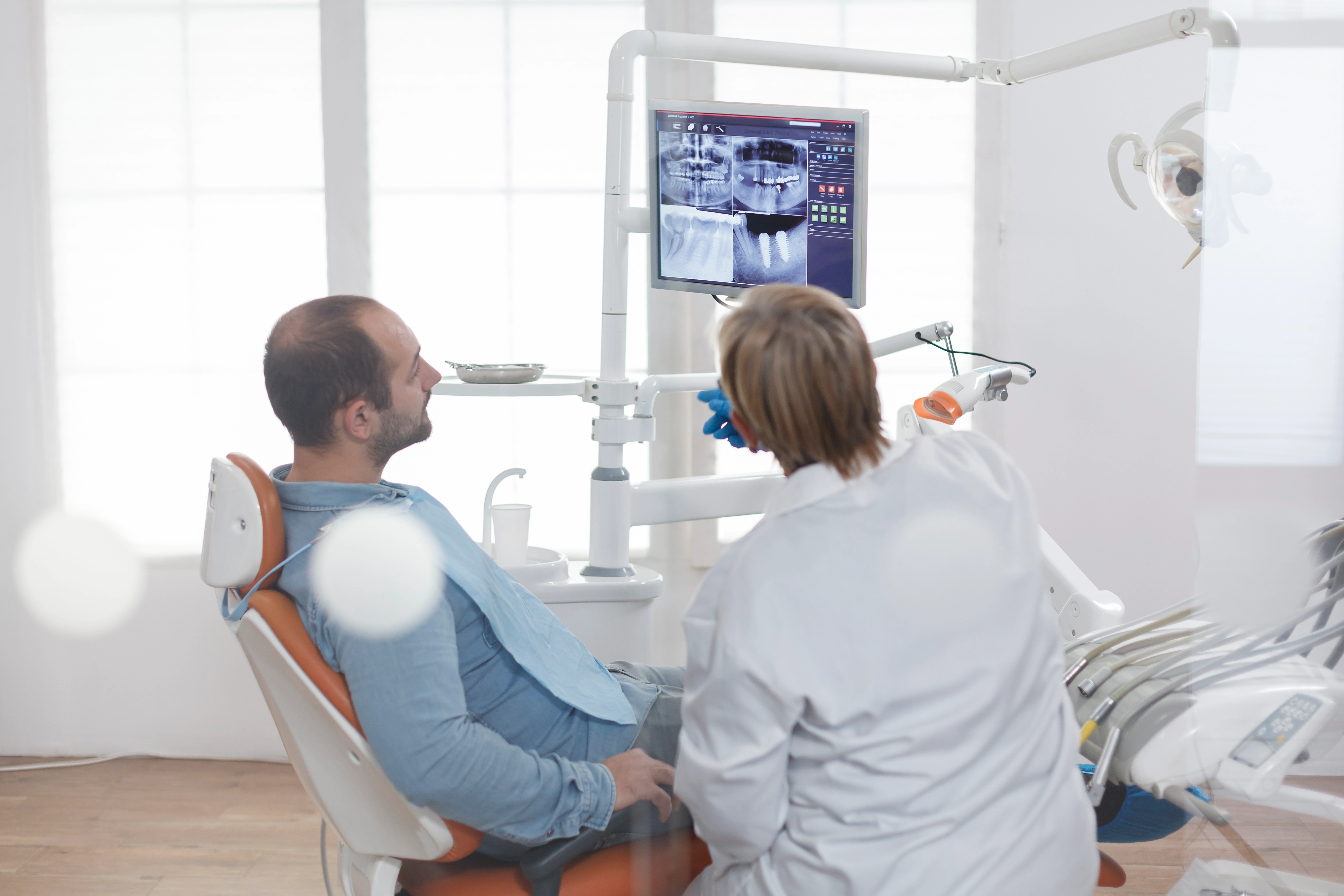
In the end, AI will not replace the dentist—it will empower them to deliver better, more personalized care.
Rather than replacing clinicians, AI is poised to empower dentists by improving diagnostic accuracy, treatment planning, and patient communication. As Professor Falk Schwendicke from Charité University Hospital states, "Artificial intelligence will not replace dentists; it will help make their clinical outcomes more predictable." This balanced viewpoint reflects the growing consensus in the dental community: AI will serve as a collaborative partner, not a competitor.
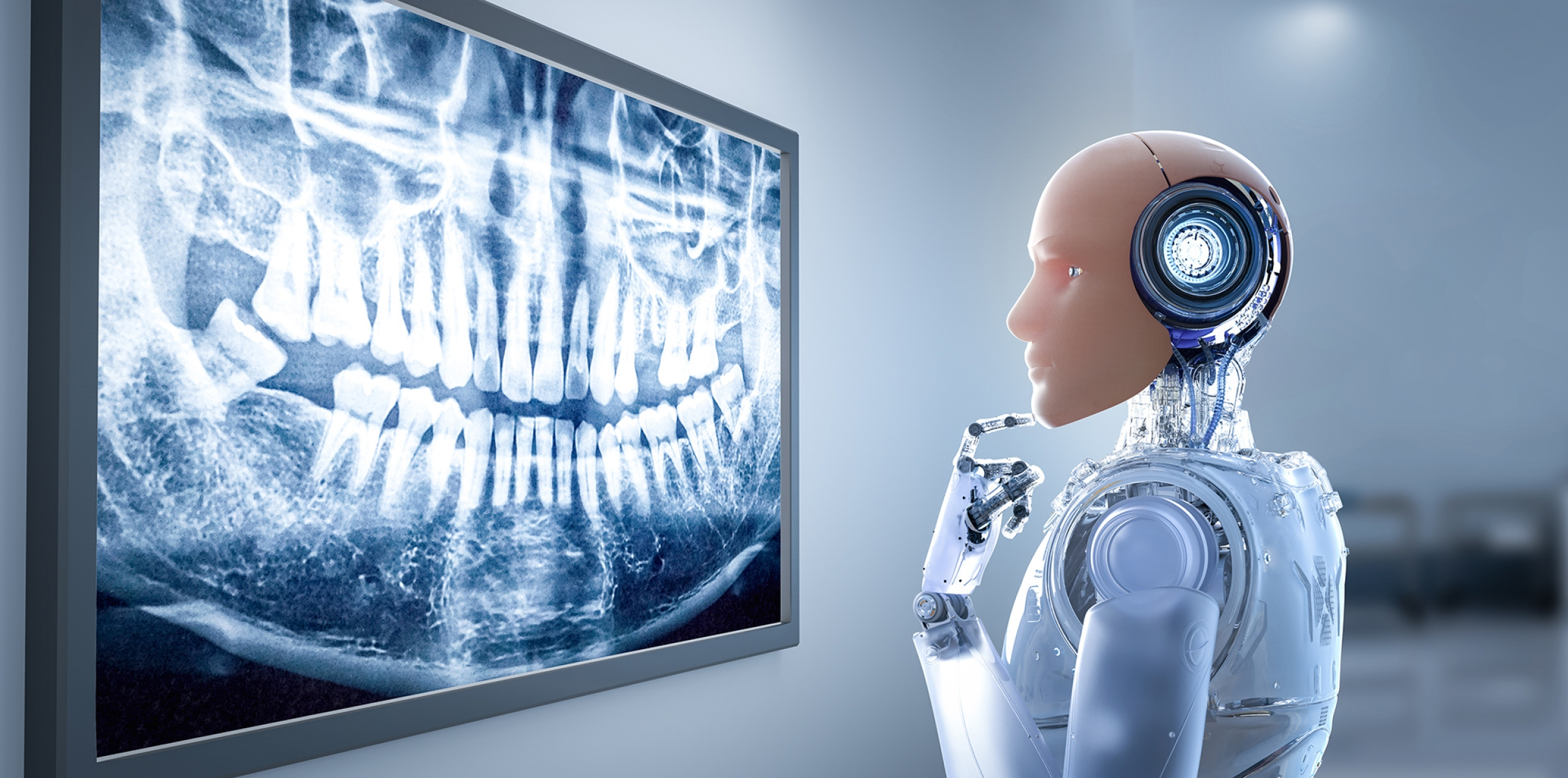
The Rise of Artificial Intelligence in Dentistry
Will artificial intelligence take over dental jobs is a concern rooted in the increasing implementation of AI systems in diagnostics, radiology, orthodontics, and patient data management. From reading dental X-rays to automating administrative tasks, AI has already begun transforming how modern clinics operate. But instead of replacing entire roles, AI applications are proving to be complementary—streamlining processes that traditionally consumed significant time and effort.In particular, AI for dental diagnostics enables faster, more consistent interpretation of radiographic images. CranioCatch, for example, leverages deep learning algorithms to detect anomalies in dental radiographs with remarkable precision, assisting dentists in identifying issues that might be missed during manual review.

AI also contributes to improved workflow efficiency. It automates appointment scheduling, patient history analysis, and insurance verification—reducing the burden on administrative staff and freeing up dentists to focus more on patient care. Moreover, AI can monitor clinical performance and suggest adjustments for evidence-based treatment planning, aligning outcomes with best practices.
What Tasks Can AI Handle in Modern Dental Clinics?
AI vs human dentists is not a battle for dominance but a comparison that reveals how each complements the other. In a modern dental clinic, AI can handle a wide variety of tasks—ranging from clinical diagnosis to operational support—allowing dentists to focus on what truly matters: patient interaction and clinical judgment.
Clinical Diagnosis and Imaging
One of the most prominent areas where AI excels is diagnostic radiology. Tools powered by machine learning can scan panoramic and periapical X-rays to detect caries, periapical lesions, and periodontal bone loss with high accuracy. These tools provide visual annotations and confidence scores, helping dentists verify findings and reach a diagnosis faster.
Treatment Planning and Robotics
Beyond diagnostics, AI supports orthodontic treatment planning, simulates tooth movement, and even helps with root canal length estimation in endodontics. In prosthodontics, AI-driven CAD/CAM technologies create highly precise restorations in less time.
Administrative Automation
AI also automates repetitive tasks like appointment reminders, billing, and patient surveys, contributing to overall clinic efficiency and better patient engagement.
Can AI Truly Replace Dentists? Here’s What Experts Say
Will AI replace dentists is a provocative question, yet leading dental experts consistently argue that artificial intelligence, while powerful, cannot replicate the full spectrum of skills and empathy required in dentistry. The unique blend of scientific knowledge, manual dexterity, and human interaction that dentists bring to patient care is not something AI can imitate—at least not in the foreseeable future.Professor Ioannis Ioannidis, a leading figure in dental AI research, emphasizes, “AI can assist in diagnosis and streamline clinical workflows, but the dentist’s role as a decision-maker, communicator, and healer remains irreplaceable.” This reflects a recurring theme in academic and clinical discussions: AI’s strength lies in supporting dentists, not replacing them.
Moreover, procedures such as complex restorations or surgical interventions demand hands-on expertise and emotional intelligence—traits that current AI lacks. AI vs human dentists is not about replacement but partnership, where AI brings speed and accuracy, and the dentist ensures care and trust.
A Synergy Between Technology and Human Touch
Will artificial intelligence take over dental jobs becomes a less intimidating question when we acknowledge the irreplaceable value of human empathy, ethical judgment, and patient trust. While AI can process data at lightning speed and detect patterns, it cannot build relationships, offer reassurance, or tailor communication based on emotional cues—all of which are vital in dentistry.This synergy is evident in both dental education and clinical settings. AI offers real-time feedback to dental students, but human educators still guide learning. Likewise, AI-generated reports must be interpreted by clinicians who understand patient-specific nuances.
By integrating AI for dental systems like CranioCatch’s solutions, practices achieve faster, more accurate results without sacrificing personal connection.

In the end, AI will not replace the dentist—it will empower them to deliver better, more personalized care.
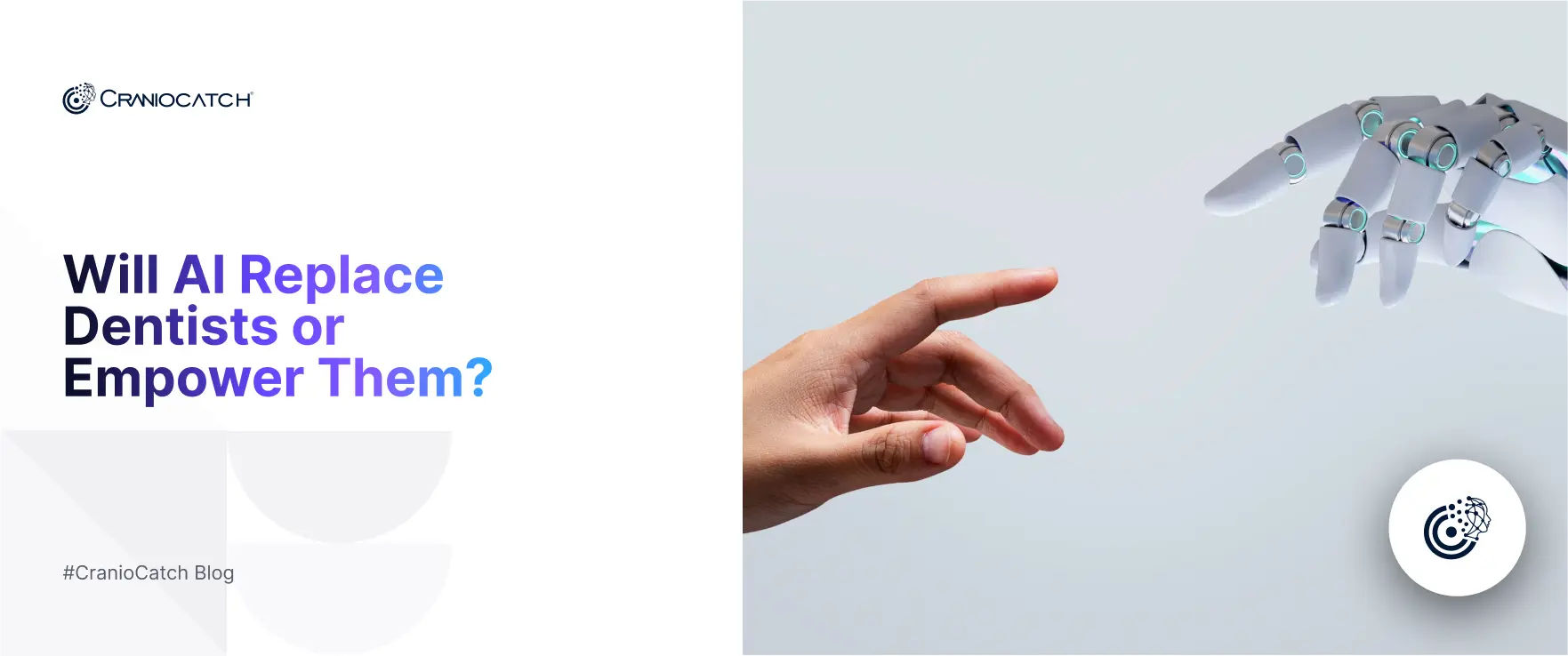
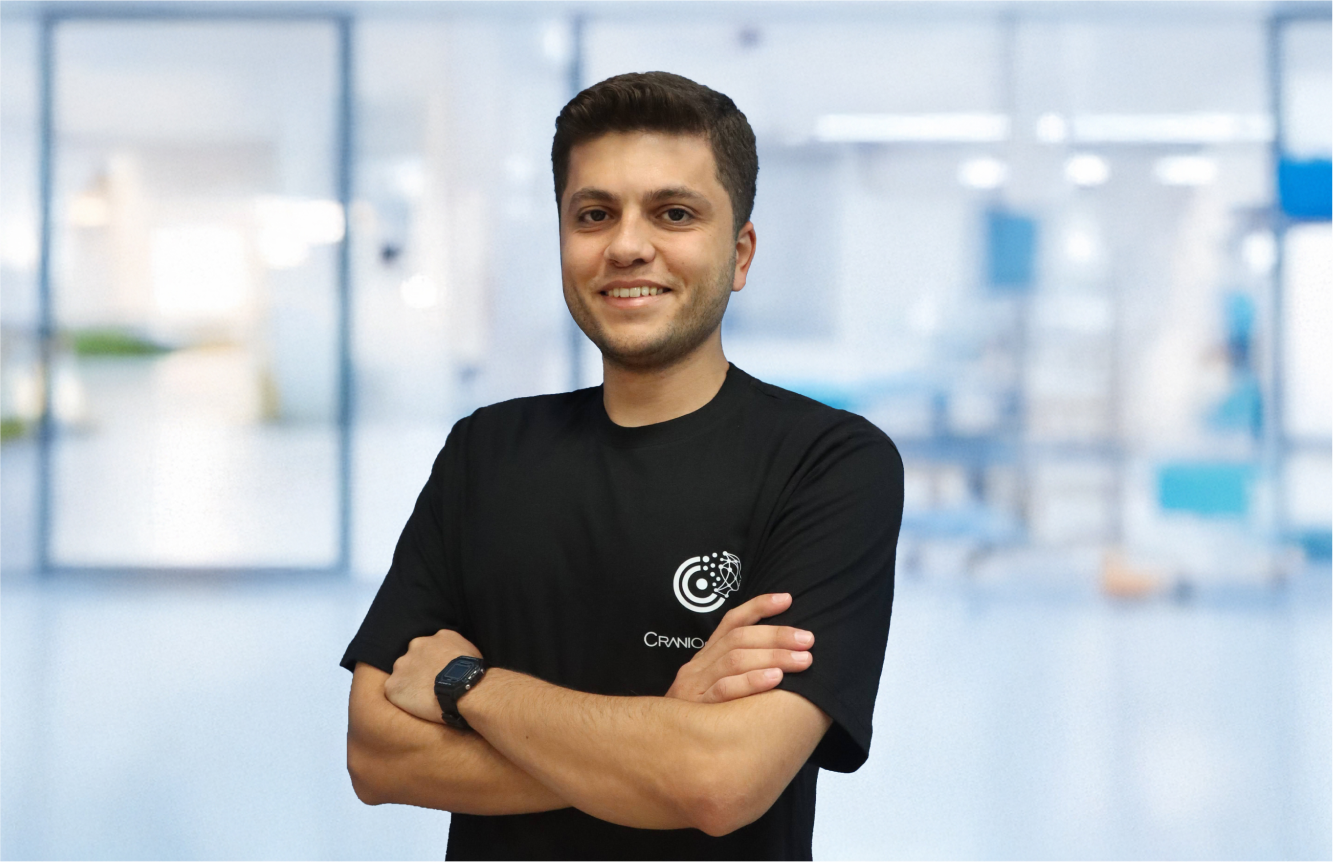
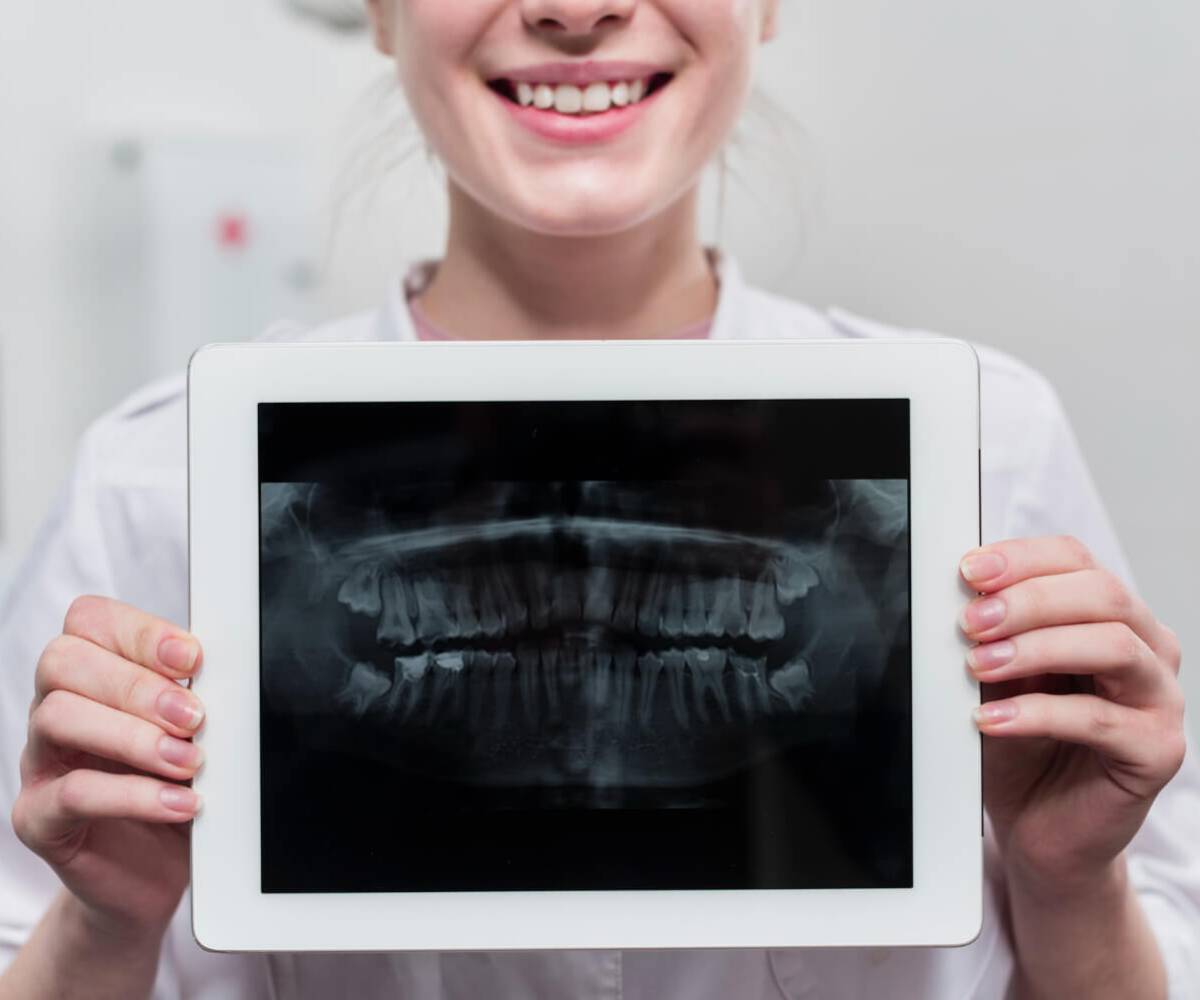
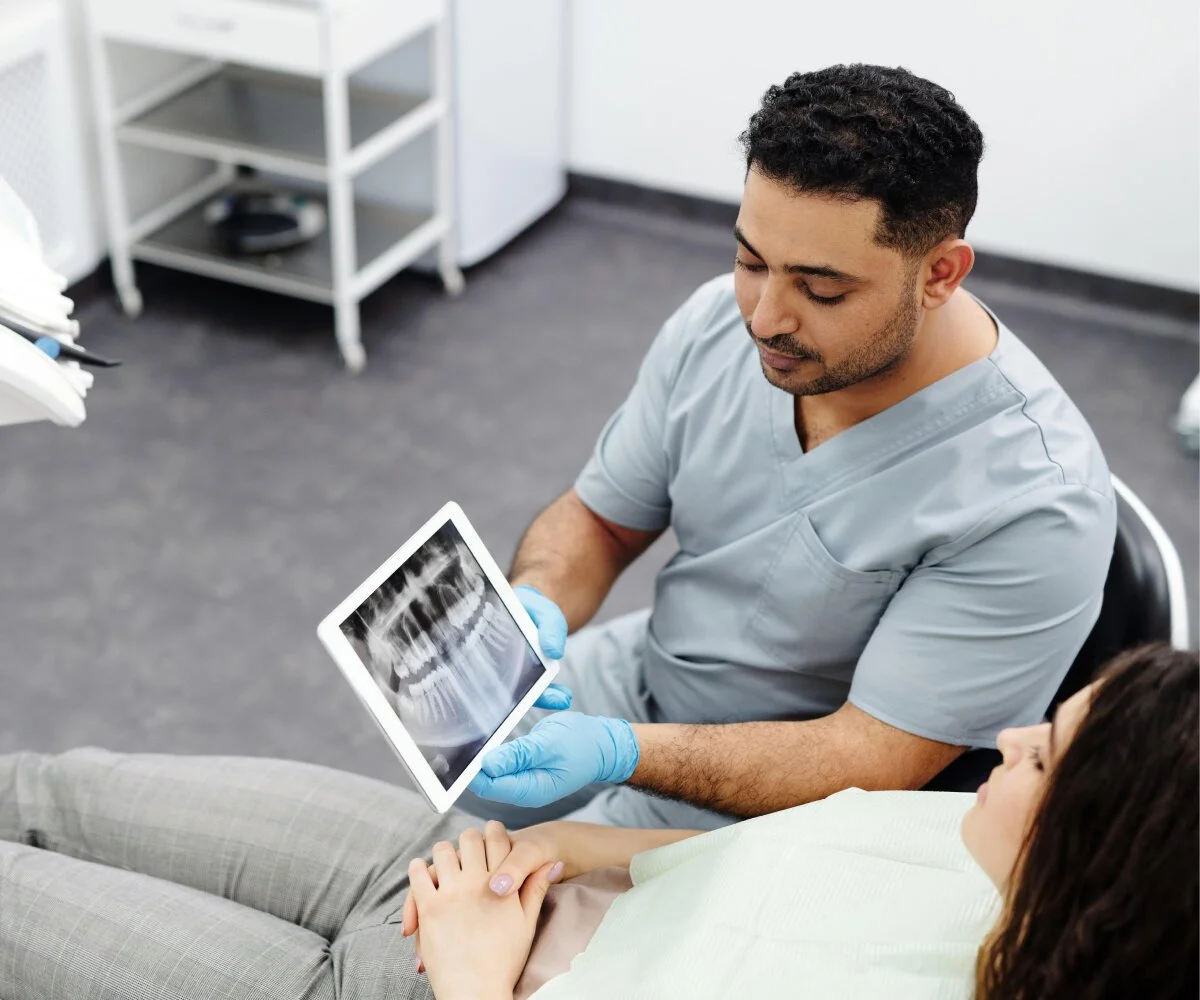
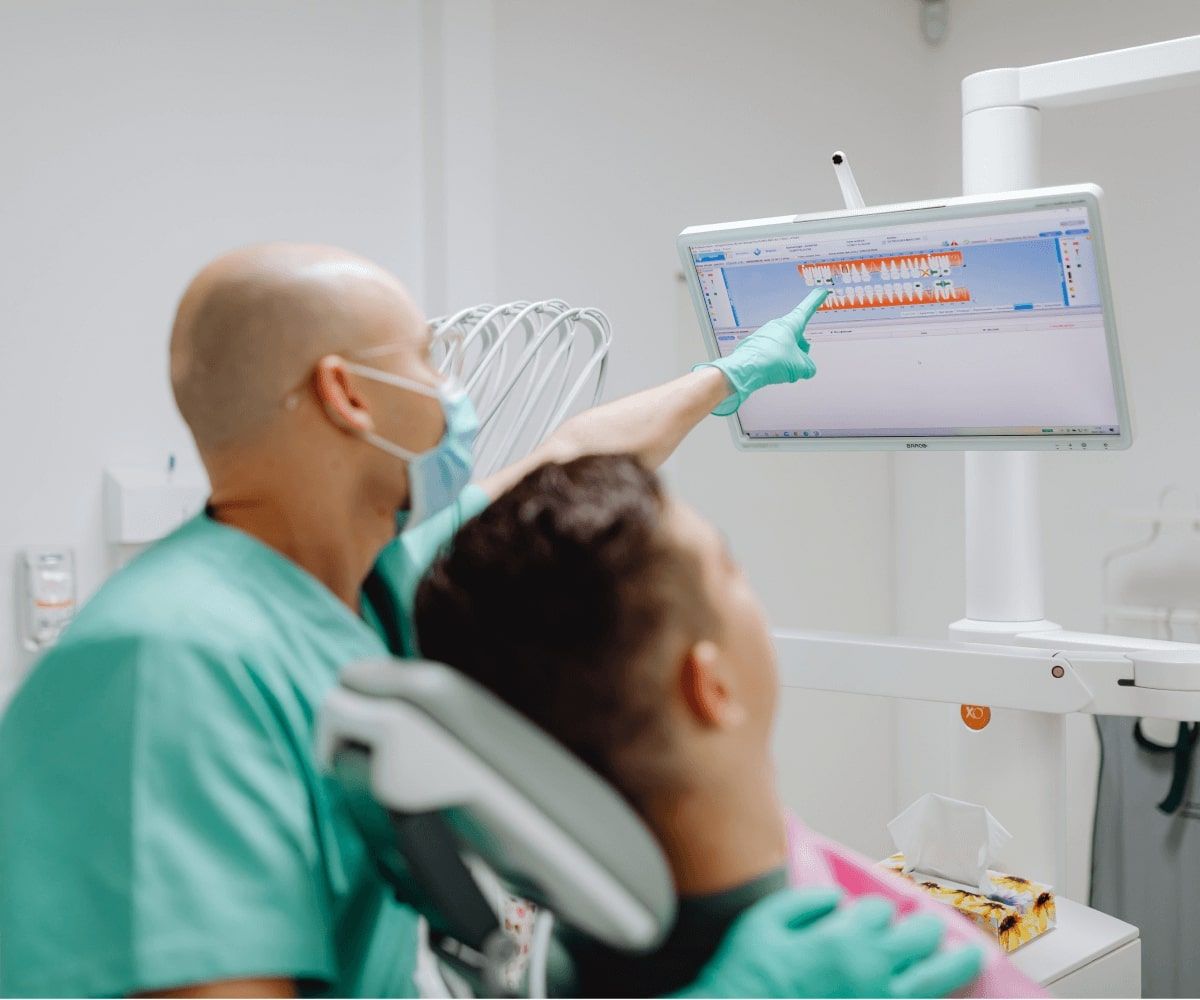
 Contact Us
Contact Us

